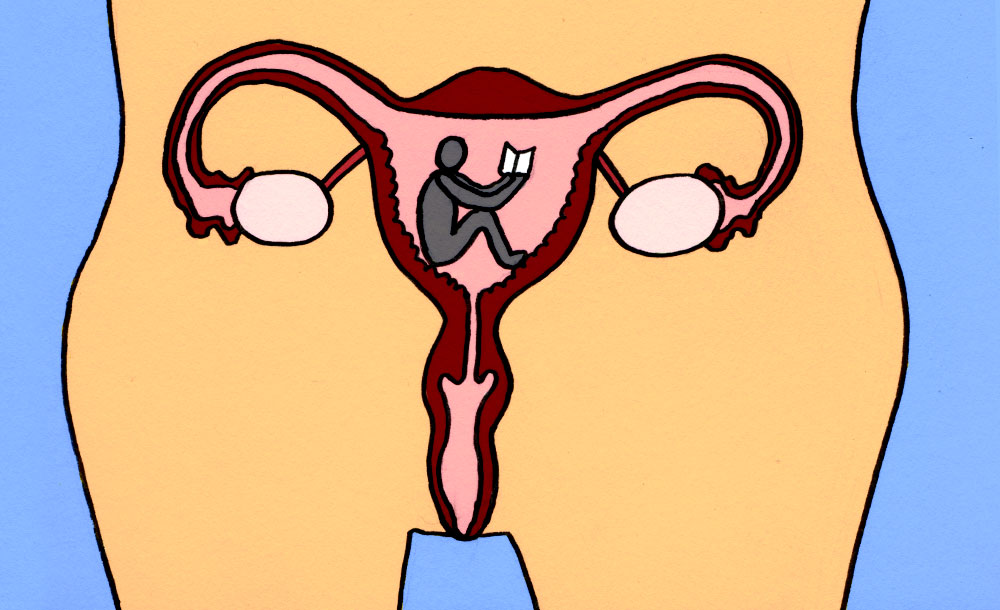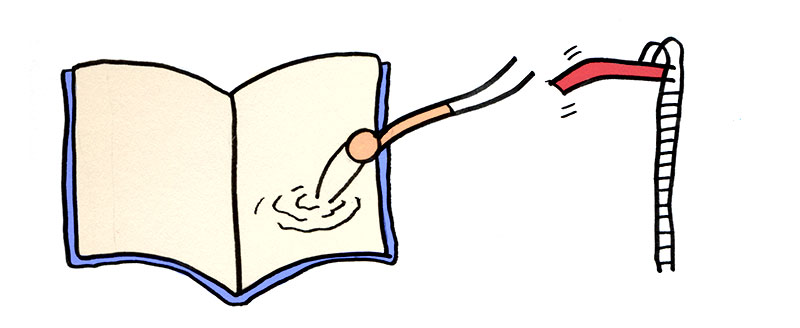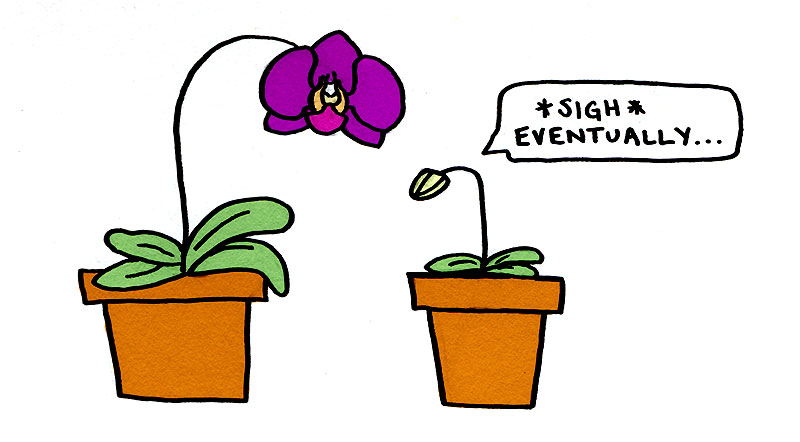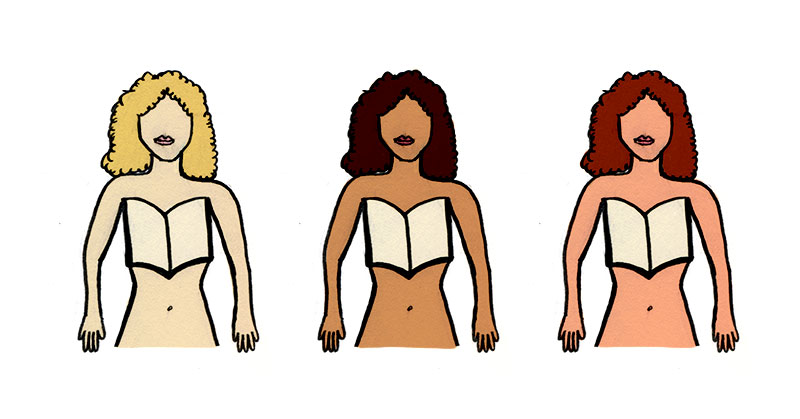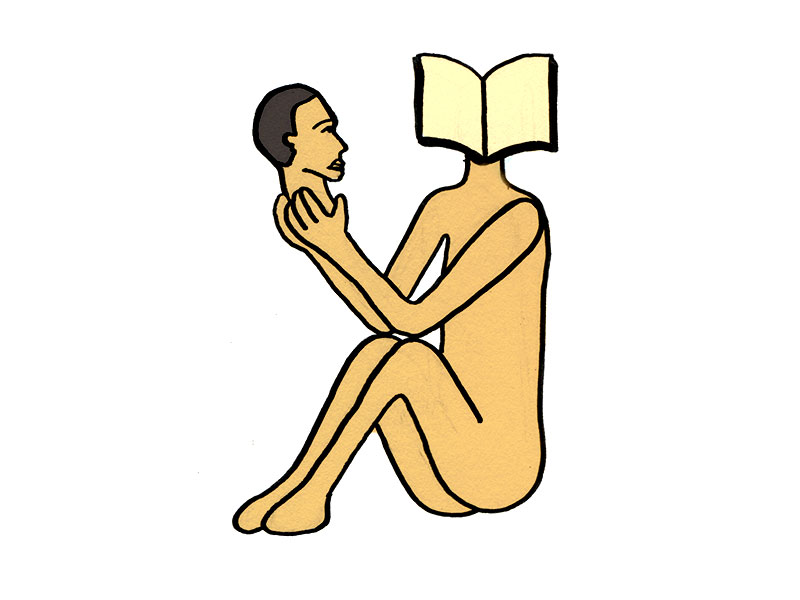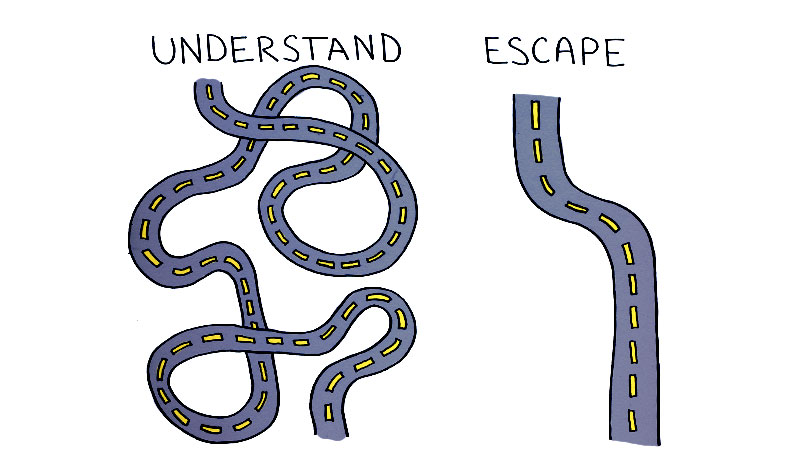In the early ’80s, my mother — barely 30, but already divorced — took a children’s lit course at community college. We were living at the time in a rented house next to an old tuberculosis sanatorium that had been turned into a home for the developmentally disabled, and every night, while the old buildings on the hill above us were lit like spaceships, my mother read in a small pool of light, her feet tucked beneath her, occasionally hooking a fallen strand of hair behind her ear. My brother and I read with her: Watership Down and Charlotte’s Web and Where The Wild Things Are.
This must have been when I first read Bridge to Terabithia and The Hobbit and The Lion, The Witch and the Wardrobe, books written for children but adopted by adults. I could analyze the themes of home and escape, but let’s just say that more than once I felt around in the back of the closet for a secret passageway. That my brother and I tried to swing across the stream in the woods across the street. That we searched for small caves to make a hobbit home.
None of us liked where we were: my mother worked as a secretary at the home for the developmentally disabled; she had taken the job after becoming pregnant with my brother and then had been stuck there, in the way young women often are. She didn’t like the house or her job or living alone. My brother and I didn’t like the Institute, nor the developmentally disabled residents we saw every day. I was ten or 11, my brother a year older, and the various afflictions they carried around unnerved us. We didn’t like the bus stop nor that we had to walk across the grounds of the Institute to get there. We didn’t like the divorce, and we didn’t like the fact that our father was somewhere out west with a new wife and a new job, so we read to escape the inconveniences of our own lives.
My mother was reading to escape as well. She had it in her head that earning a college degree would open mystical doors that had, so far, remained locked to her. I could tell her now, across the great gulf of time that separates us from who we once were, that she was a cliché — the divorcee who goes back to school in an attempt to change her lot in life, but out of fear my words might hurt the young woman she once was, I’d rather write about how she changed mine.
We were all changing. My mother had gone from married to divorced, a designation I didn’t realize at the time marked her. People whispered behind their hands when they saw her in the grocery store. They didn’t do it because they were uncaring but because that’s what people did in small Southern towns. They talked. They told stories about who got divorced and who was having an affair, because we all like to tell stories, or so I’ll say now.
My brother and I were changing, too. He would soon start shaving. His voice dropped. He sprouted hair in places I didn’t know would hold hair. Acne and awkwardness appeared all over him.
Because I was the younger brother, I wondered when my time would come. I was a small child, one of the smallest in my class. I was so skinny you could see my ribs through my thin skin. My father was always asking when I was going to start eating. My grandfather said I was skin and bones. Besides escape from where we lived, I wanted to escape who I was. I wanted to be a man and grow a mustache and have muscles. I wanted hair in the places there had been none previously. I wonder now how much of our lives we spend wanting to be someone else, but then I just wanted a deeper voice, and a few inches height, to look down at the kids who’d always looked down at me. Strange that eye-level is a factor in how we figure our self-worth, but so is everything about being an adolescent. Or an adult.
It was in this time, this strange pre-adolescence, this coming and continuing change to who we had always been, that I read Are You There God? It’s Me, Margaret by Judy Blume. I had gone through all the other books my mother brought home, most of them written by men about boys. She was working on her final project now, writing a paper about themes or symbols or something that escapes me, and Margaret was the last book left.
On the cover of the 1970 edition, Margaret looks a bit like my mother. I’m going to say that I knew something then about change and transition, that I saw everything going on around us with perfect clarity. I’m going to say I knew Margaret’s coming to terms with religion and sexuality would help me understand the place where I lived, who I was, and that, by some adolescent formula best left unidentified, that learning how a girl became a woman would help me learn what it meant to be a man.
Of course, none of that’s true. I might have seen my mother in Margaret because both were transitioning into something previously unknown, but I wanted to read it because I had heard there were descriptions of breasts and periods and bras and panties in the book. This at a time when, at the library, my friends and I crept to the giant dictionary to look up the words “vagina” and “intercourse.” When we flipped through biology texts to find diagrams of the uterus because the female body was a bigger mystery than our own. When the more brazen among us made up stories of intercourse that we all knew never happened but that we listened to anyway. None of us had yet stumbled upon Playboys or Hustlers or, a few years later, porn videos, but the dictionary definitions and crude drawings in biology books only increased our curiosity. A friend said he could hear his parents “during.” During what? I wanted to ask.
When I told my mother I wanted to read Margaret, she said I might not like it. Though we were still a year or more from talking about sex, I knew why she looked away from me. Boobs, I was thinking. Panties. But I pretended not to know what she was talking about when I told her I’d try it anyway.
I hear students say they like most the books they can relate to, which is a reasonable request, I suppose, but what I’m remembering this morning as I write about the past is a book I will never be able to relate to. As a young boy, I could have related to Margaret’s religious questioning, but I was not interested in Margaret’s religion. Living in an all-white, mostly Protestant, Southern town, I scarcely knew what a Jew was. Interfaith marriage meant a Baptist had married a Methodist, and the only questioning we were allowed was whether the communion wafer was a symbol or the actual body of Christ.
I could also have related to some of Margaret’s adolescent insecurities. I didn’t understand the pressure she felt at not having her period, but I understood the feeling of inadequacy, that everyone else was developing faster than she was, and soon she would be left behind. That God has something to do with our changing bodies and bestows gifts on us based on our goodness.
But that was where my understanding ended. I did not know what it was like to grow breasts, except for the man-boobs some of the heavier boys hid when we changed into our PE clothes. I had only the vaguest notion of what a period was, and no idea why it happened, or how, or when, or what it meant in the overall design of the universe. I did not know why girls developed before boys or why, when I looked at someone like Jennifer Stokes in seventh grade, I felt funny inside, struck dumb with desire, my eyes drawn to the budding breasts, my mind wondering what went on below the belt.
I still know amazingly little about those things. And though I’m not quite struck dumb by an unnamed desire, I still know nothing of how the uterus or universe was designed. I see my daughters grown skyward and wonder what secret worlds they hold inside them at the same time I worry when men will make fun of their attempts to improve themselves.
But my mother taught me reading is an attempt to understand. Even the escape-isms of children’s books hold hard-won truths inside them, despite the often saccharine deliverance: Bilbo realizes how much he misses home; the world behind the wardrobe is as warful as the one the Pevensie children have left behind; and Terabithia is only a temporary sanctuary from all our human sadness.
At 11, I hoped Margaret really could make her boobs bigger by exercising them, the same way Bobby Brady tried to make himself taller by hanging upside down from the swing set. I wanted there to be magic in the world, and wardrobes and wizards. What I found in Margaret were the same struggles everyone goes through, though I’ll admit my understanding then was shallow and self-serving. I’ll never understand what it’s like to have a period, or give birth to a person, no matter how many books I read — the biology isn’t there. Which is my problem with the word “relatable” and how we should apply it to books — if we are only trying to relate to ourselves, we have lost.
And we have lost. Let me say that now. We live in a world where women are objectified, where exist too many men like the boy I was once was, eyes drawn to breasts and down below the belt. Where women are chastised for breastfeeding in public, often by other women, at the same time their breasts are being objectified in magazines meant for men. Where women are shamed for their size or the shape of their bodies or how many men they’ve slept with. For what they wear or when they wear it. For what they say and how they say it.
It’s as if women are still expected to be developing, growing to meet an unrealistic image created as some sort of fantasy. As if so many of us never tried to see the world from another person’s point of view and instead shoe-horn them into ours. Never read a book about someone other than ourselves or someone we can relate to, as if relating to a fictional character is the only criteria with which we need concern ourselves.
My mother finished the class. She also kept reading. During college, when I was broke most of the time, I’d go home on the weekends and find stacks of books I’d take back to my apartment. I still have the old copy of Watership Down. And Where the Wild Things Are and Charlotte’s Web, though I’ve lost the other ones, including Margaret, with her questions neither me nor God could ever answer.
After reading hundreds of my mother’s books, I started writing. Recently, I wrote about Where the Wild Things Are. I wondered why Max’s mother is always offstage, and why there’s no father, offstage or otherwise. I asked myself why the monsters are all men. The whole second half of Watership Down consists of the male rabbits searching for females when they realize their new warren will die without offspring. One wonders why they never thought of that before, but I’ve been alive long enough to know that men rarely think things through, or realize their own inadequacies. As much as I love Tolkien, I have to wonder why there are no women in The Hobbit, a story he supposedly wrote for his children. It takes an educated Charlotte to save Wilbur, though she dies after serving her purpose. In Terabithia, Leslie, the main female character, dies as well, as if she was only there to teach the boy a lesson about life and loss.
I grew up without a sister and with a mother who was both mother and father. I never understood the fear a girl might have of adolescence. In Margaret, the four girls claim excitement, but in reality, they are afraid. I couldn’t understand why they were afraid of their changing bodies until I realized years later that maybe they already knew how men would look at them. I didn’t know what it would be like to be a girl afraid of becoming a woman — I only knew what it was like to be a boy looking forward to becoming a man.
In grad school, I wrote stories in which my characters were often escaping from either adolescence or adult responsibilities. They were always leaving, or on the verge of leaving, and it would come to me at some point that women can never escape in the way men can. Not the way men treat them, nor the biology of their own bodies. Men can leave. They can disappear into the wardrobe and never return. They can swing across the bridge to the secret world, away from all responsibilities, and they can hide their heads in a hole so they don’t have to look at the outcomes they cause. They can pass laws that govern women’s bodies while claiming the cause of their concern is somehow related to freedom.
I wonder if this is the reason Margaret was so controversial — it never tries to fictionalize the struggles women face or the questions they have about what becoming a woman means. That must have scared a lot of men. I also wonder if this the reason so many children’s and young adult books about escape are written: that it’s easier to escape than to understand, and only through some long, arduous journey, can we begin.
We eventually escaped the sad circumstances of the time: my mother finished her degree and got a job as an instructor in the same place she’d been a secretary. I grew up and got married and had two daughters who must have worried about breasts and bras and panties and periods, though I am not sure because we never talked about any of that. We talked about books and why boys on the bus were so mean. They always went to their mother when worried about their bodies, which I’m assuming now was because they knew instinctively I wouldn’t understand. •
All images created by Isabella Akhtarshenas.
